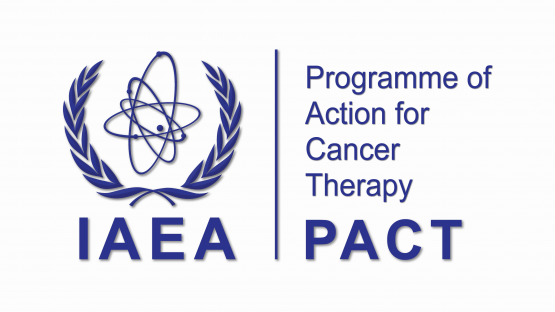The Republic of Moldova is one of Europe's poorest nations. With no significant mineral deposits, the landlocked Eastern European nation must import energy supplies and relies on an agriculture-based economy. Due to job shortages at home, roughly 25 per cent of the working population are employed outside of the country.
Poverty in Moldova is reflected in certain health indicators, including life expectancy at birth, which is one of the lowest in Europe. Total expenditure on health amounts to just $170 per capita, compared, for example, to France at $3314 and the Czech Republic at $1445.
The country is also battling a number of factors that contribute to increased chronic disease, in particular to cancer. They include tobacco and alcohol abuse, dietary deficiencies, low cancer awareness and a legacy of water and soil contaminants. From a population of 4 million, more than 5300 people die of the disease each year. And in 2007, there were over 7000 new cancer cases, an increase of 7% since 2005.
“Roughly 70% of cancers in Moldova are diagnosed at Stage III or Stage IV,” says WHOcountry representative, Dr. Pavel Ursu. “The downstaging of cancer is critical to saving lives. Therefore increased health education, for the general public as well as for health professionals, is imperative.”
In an effort to help countries like Moldova build cancer control capacity and strengthen radiation safety infrastructure, the Czech Republic offered to fund PACT-organized assistance to Moldova in these crucial areas. Says Otakar Gorgol, Counsellor at the Czech Permanent Mission to the IAEA: “We see PACT as an umbrella for the IAEA's cancer efforts. It is a visible entity for helping people in need.”
During a three-day imPACT mission — a multidisciplinary, multi-stakeholder assessment of Moldova's cancer burden and the strategies required to meet its needs — mission members visited the capital Chisinau to meet with representatives of the Moldovan Government and the nuclear regulatory authorities, as well as with health professionals leading the country's fight against cancer.
“Thanks to a high level of participation and collaboration from the Moldovan authorities, the mission was successful in identifying priority areas of national cancer control and radiation safety infrastructure, says PACT's Dan Malin, who lead the mission. “Support from the IAEA and international partners, such as the WHO Regional Office for Europe and the Czech Republic's State Office for Nuclear Safety, can have a big impact.”
At the end of the mission, the imPACT team presented a list of preliminary recommendations to Dr. Liviu Vovc, Head of the Ministry of Health's Public Health Department. Of priority, they felt, was the establishment of a comprehensive national cancer control programme (NCCP), including the essential components of cancer prevention, screening and early detection, treatment, palliative care and cancer registry. The list also included recommendations in connection with Moldova's regulatory body for radiation safety, such as the establishment of a formal programme of training and the provision of continuous professional development.
In the short-term, PACT and its partners, in conjunction with the Czech and Moldovan authorities, will work to strengthen those areas identified as in need of prompt action. This may include a peer review of the regulatory system and cooperation in developing an action plan for improving radiation safety in Moldova.
For its part, the Moldovan Ministry of Health organized a week-long anti-cancer campaign last summer aimed at helping to raise public awareness of the disease and promote healthy lifestyle habits while offering free medical check-ups. It's one of many steps the authorities are taking to combat the scourge of cancer.
Together with PACT and its interagency partners, and the visionary support of Member States such as the Czech Republic, Moldova hopes to move rapidly towards improved cancer care and control for all of its people.


